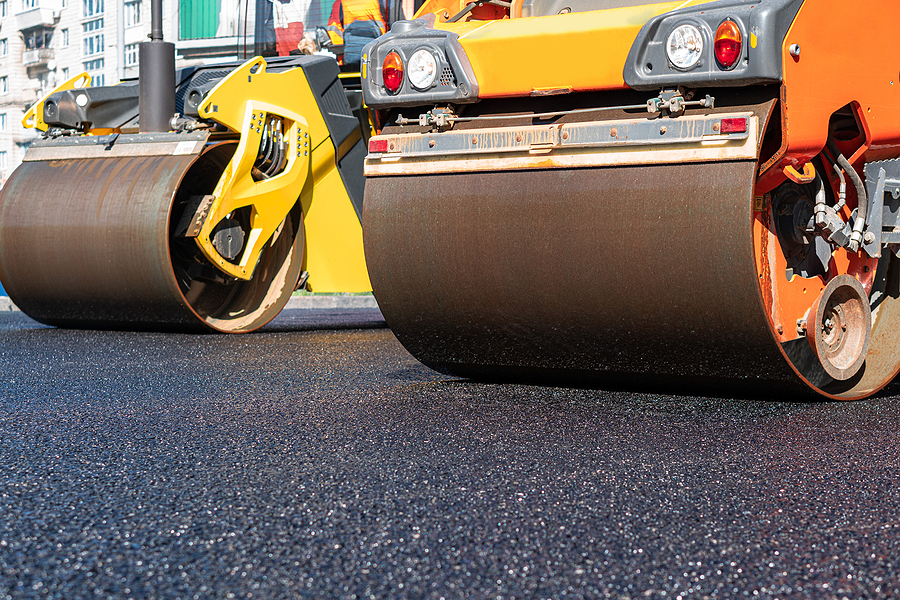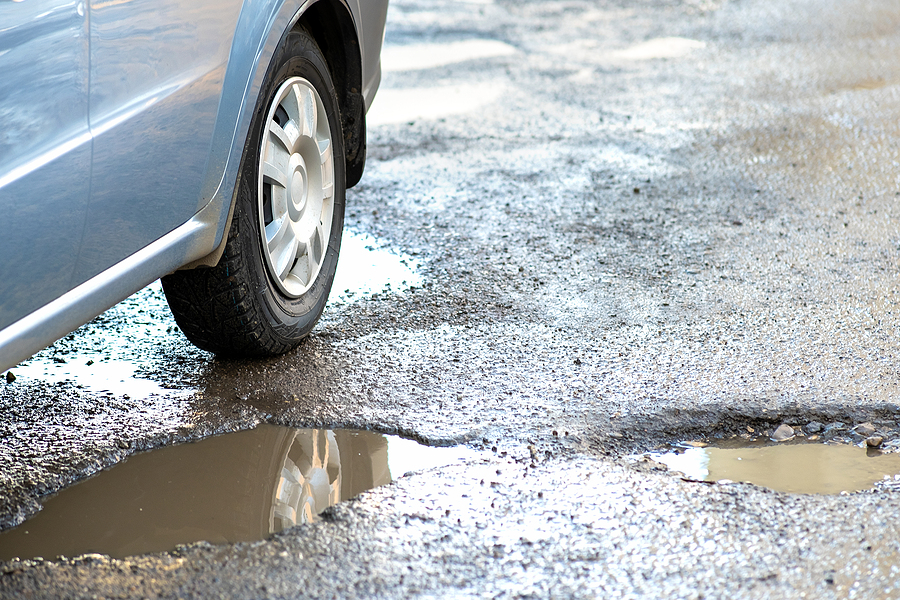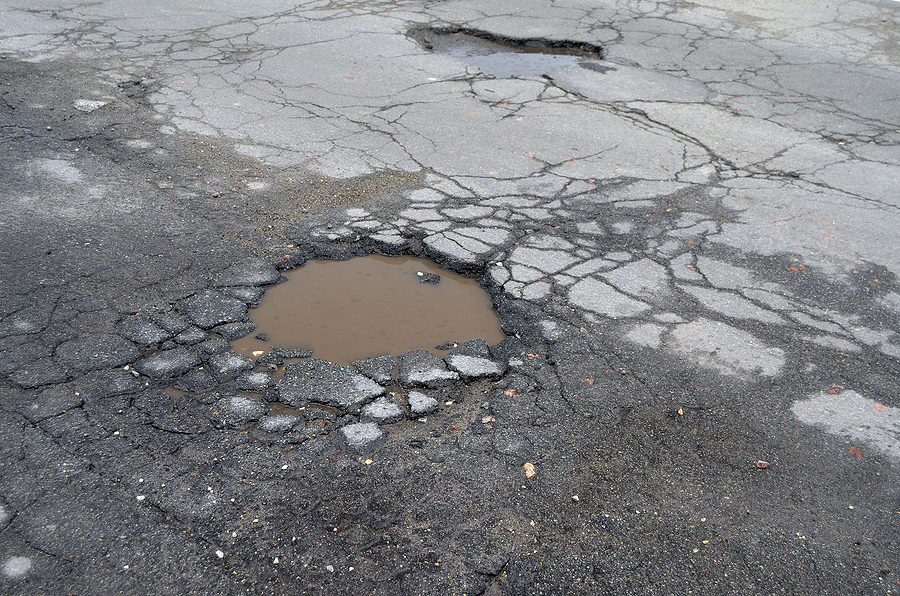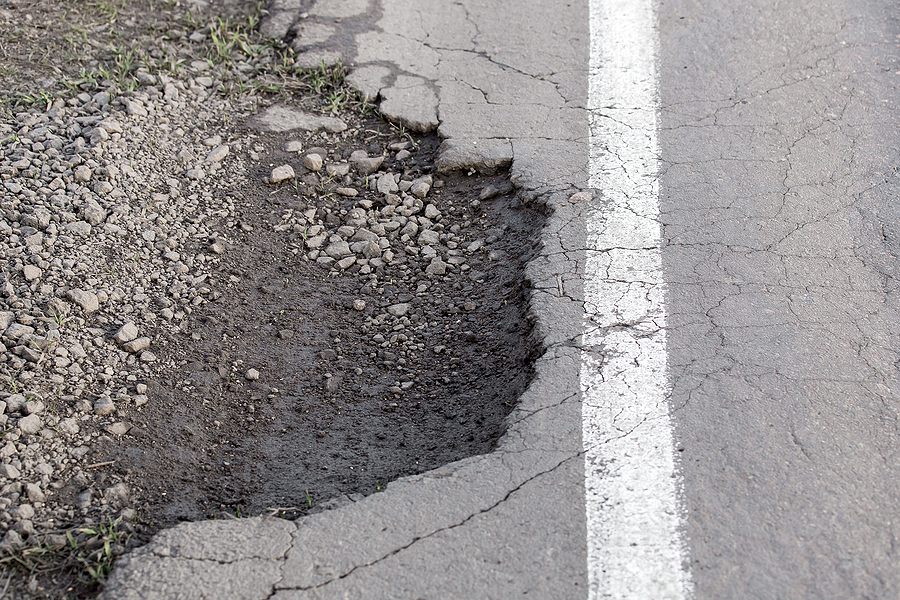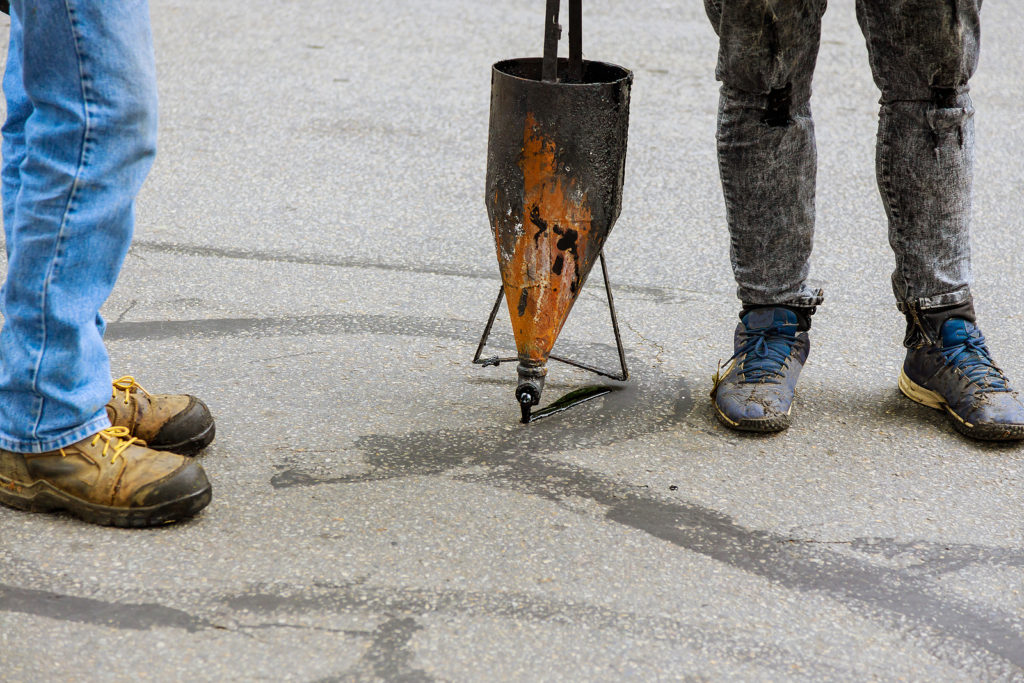Potholes are one of the top pavement defect concerns for commercial and industrial property owners. Not only do potholes jeopardize the safety and performance of pavement, but they also reduce aesthetic appeal and overall property value. To better understand how to protect your pavement from potholes, it is helpful to learn what causes them to form and which strategies work best for repair and prevention. Continue reading to do just that!
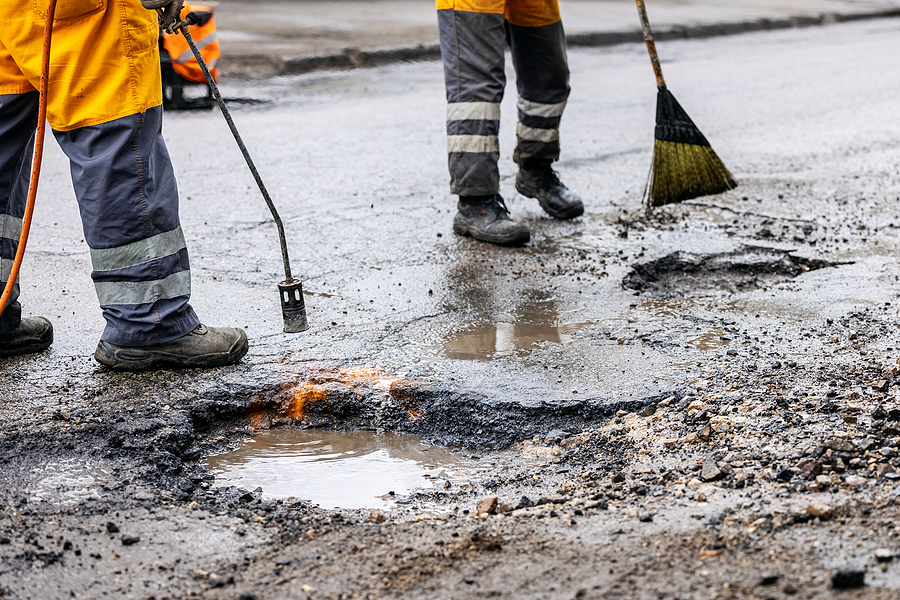
Potholes Often Show Up in the Spring
It is no secret that the rate of pothole formation tends to increase in the Spring. After the freezing temperatures and snow disappear, more potholes begin to show up. This is due to seasonal freeze-thaw cycles, which cause pavement to contract and expand with the changing conditions. These conditions can cause surface defects to form very quickly, which is why it seems like so many potholes and pavement depressions suddenly appear around this time of year.
Where and Why Potholes Form
The two factors that contribute to surface blemishes the most are cold temperatures and water. When these two factors are present, it is highly likely that pavement defects will occur. Both asphalt and concrete surfaces are vulnerable to these effects, including sidewalks, parking lots, roads, streets, pool decks, and more.
It starts with water seeping into existing cracks and depressions in pavement that have been caused by a combination of inclement, weather, traffic, and natural wear and tear. Water then reacts with the cold temperatures by freezing and subsequently expanding. Then, when temperatures become milder, the water thaws, causing the existing cracks to contract and ultimately worsen. This is due to water draining and evaporating into the surface, causing a gap to form between the ground and the pavement. The more this cycle occurs, the larger the surface blemishes get, and eventually form what we frustratingly know as potholes.
Best Methods of Pothole Prevention
The best method of prevention when it comes to concrete and asphalt pavements is to repair surface blemishes while they are still in their early stages. This usually involves crack over-banding, crack filling, and pothole filling, using materials such as thermoplastic preformed tape, MMA cold plastic infills, cold lay material, hot work patch material, and more.
Another common preventive method is routine maintenance, which may include periodic resurfacing, overlays, reinforcement, cleaning, and incorporating an efficient water drainage system. If you are having new pavement installed, it is vital to hire a professional paving company that has a reputation for providing trusted work and outstanding results. Many pavement problems start with poor installation, so be sure you hire wisely to avoid making a poor investment.
Does your commercial property or parking lot have some potholes that need patched up or repaved? Contact ACI Asphalt and Concrete at 317-549-1833 for commercial pothole repair and asphalt paving services in Indianapolis, Indiana.
You Should Also Read:
How to Report a Pothole in Indianapolis
Why Pothole Repair Should Be at the Top of Your Priority List
The Benefits of Commercial Parking Lot Resurfacing


